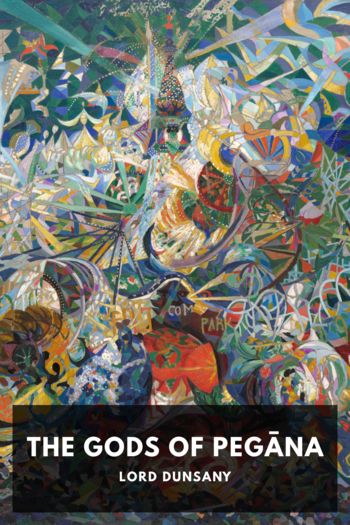It's the End of the World : But What Are We Really Afraid Of? (9781783964758) by Roberts, Adam (reading in the dark .TXT) 📗

Book online «It's the End of the World : But What Are We Really Afraid Of? (9781783964758) by Roberts, Adam (reading in the dark .TXT) 📗». Author Roberts, Adam
The Deucalion story has an obvious parallel with the story of Noah, in which God has had enough of human wickedness. In the Torah and the Old Testament, God decides that Noah will survive because he is the world’s only righteous man, giving him advance warning of the coming flood. That is offered as an explanation for why God doesn’t tie off the unfinished business that Noah represents.
The common feature in these narratives is that the gods decide to destroy us because they have grown increasingly disgusted with our human sinfulness. The point, in other words, is punishment, and if there aren’t any people around afterwards to learn the lesson, what is the point of the punishment? So this is not as much about mortality as it is morality. We carry within ourselves, to varying degrees, a sense of personal discontent linked to shame and guilt. Only the sociopath is free of those two qualities; for most normal people they loom pretty large. We are afraid that our nature is inherently sinful and that, accordingly, we deserve what we get. These stories are a judgement on how a society has lost its way; cautionary tales to scare us into being good. If a person punishes us, then perhaps there has been some kind of miscarriage of justice. But that can’t be true if God punishes us because God is justice.
There are versions of this particular end-of-the-world story – God’s wrath – all over the globe: the flood that moves across the world like the bar of an Etch A Sketch, resetting it to blankness. The world is styled as emerging from the waters, just as we are each born when our mother’s waters break, so there is a symmetry in the idea that the world will end with a flood. That such narratives speak to a general collective experience makes more sense than the idea that it relates to any historical event. There have, of course, been floods in the world’s history, including some on a prodigious scale. It has been hypothesised that the Black Sea was created around 5600 BCE when a rise in global sea levels caused the Mediterranean to burst over a land barrier, turning a previous freshwater lake into a much larger saltwater sea. The marine geologists William Ryan and Walter Pitman have speculated that memories of this gigantic flood fed into the many flood narratives in Mesopotamia and the Near East, including the Biblical flood of Noah.* But there are reasons for avoiding such parochialism: flood narratives occur in mythologies from all around the world, and not just from the area around the Black Sea. Ours is a watery world, and most early human societies lived by or near seas and oceans. Floods happen in the real world; tides and tidal bores and tsunamis affect all coastlines. In a world before globalisation, with communities living in isolation, local events such as these would have seemed practically world-ending at the time. With no explanation other than an angry god, the stories and myths that emerged from these incidents are often replete with ideas of punishment and a world reborn into innocence.
Hindu mythology includes the story of a great flood called Pralaya. In this myth, the first man, Manu, gets advanced warning of it from Vishnu and is able to construct a boat in which to escape. In Mesoamerica, the Tlapanec and Huastec peoples told stories of gods who drowned everybody, outraged at human iniquity. One man survives with his dog and, fortunately for the continuing existence of humankind, the dog possesses the ability to metamorphose into a woman at night, which allows them to repopulate the earth. In India, Puluga, the creator god of the Andaman peoples, punishes human wickedness with a devastating flood, but two men and two women survive in a boat. One of the earliest stories that survives from human prehistory, recorded in the Epic of Gilgamesh (written in 2100 BCE in Mesopotamia) concerns a great flood sent by the gods to wash the wickedness of humanity off the face of the world. This plan misfires because one of the gods, Ea, breaks ranks with the others and warns a human he favours: Utnapishtim. Ea tells him to build a boat so that his family and ‘all the animals of the field’ can be saved from the coming flood, and so he lives, ensuring the survival of humankind.
Many religions put a positive spin on these stories to gain adherents; God is punishing only those heretics and unbelievers, not us. For us there will be a little escape hatch through which we can make our way to a new heaven and a new earth. Our salvation tends to come in the form of a saviour figure, sent to guide the faithful through the end. The Jews are still waiting for their promised messiah, while Christians – who budded off from that ancient faith 2,000 years ago – believe the saviour came once and will return again. In fifth-century CE China, an unknown Taoist master wrote the Divine Incantations Scripture, which promises the coming of a messianic figure who will rule over the faithful and destroy the rest of humanity. The text talks about the end of the world as a battle between the gods, or the ‘officials of the celestial bureaucracy’, and ‘daemon kings’, a metaphysical war between order and chaos that will lead





Comments (0)